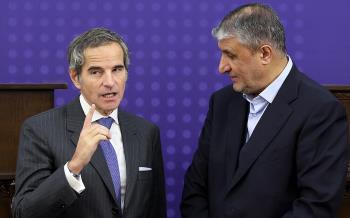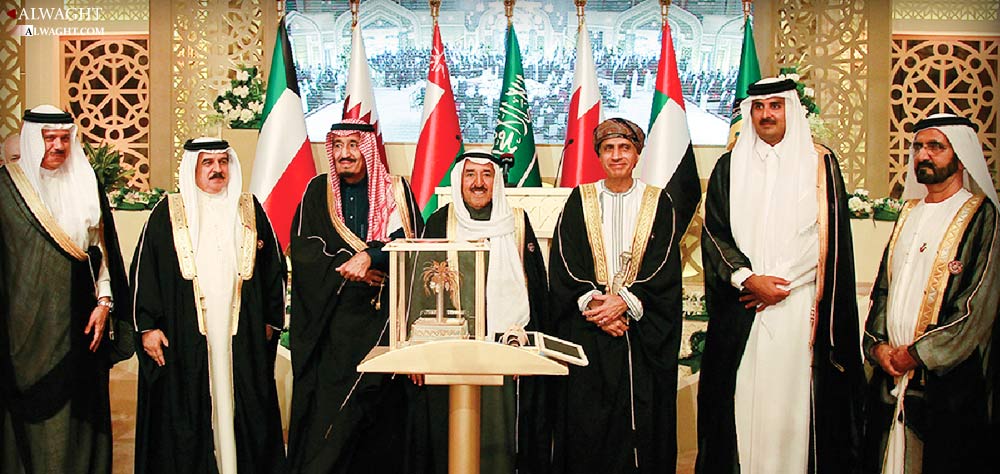Alwaght- A sociopolitical view of some of the Arab countries in the West Asia and North Africa in the first place calls our attention to a major similarity between these countries and it is non-existence of democratic, responsive and committed governments, and on the other side, existence of authoritarian and despotic regimes. Looking at them from another aspect gives rise to a question in our mind: Why did not, despite similarities the governments of these countries share, the Arab uprising storm sweep through them all equally? For example, the tyrannical regimes in Tunisia, Egypt, Libya, and to some degree Yemen collapsed right after the first wave of revolutions ripped through them while absolute monarchies of the Persian Gulf region like Saudi Arabia, the UAE, Kuwait, Qatar, and Bahrain– and Jordan a little farther– weathered the highly devastating hurricane of the Arab uprisings sparked in 2011. This question is more seriously found in the mind of those who anticipated that the revolution that erupted in Tunisia and brought down the dictator Zine El Abidine Ben Ali will end while triggering fall of the Persian Gulf monarchies. But this did not happen, why?
Having in mind that the republic political systems get their legitimacy from the public governance and public participation– and this is done through elections–, any failure to address the people’s political demands immerses them in a legitimacy crisis. In fact, the lifelong presidency and grasp of power by a single person as a president are in conflict with the democratic governance and the people’s supremacy in republican systems of governing. Withholding the political, social, and economic rights and freedoms of people in these republics come while people’s expectations from the government see a rise. The political legitimacy crisis in the Arab republics that stems from this paradox, combined with economic corruption of the governing body and the society's economic discontent, needs a spark so that a heavy wave of revolutionary moves emerge against the governments in these republics. Such sparks were ignited by cases like Mohamed Bouazizi, the Tunisian young street vender who set fire to himself to protest confiscation of his wares by the authorities in 2011, stirring a public anger and then a revolution that toppled Bin Ali.
Why are the Arab monarchies relatively stable?
But the monarchical regimes have so far proved more stable and durable in comparison to the republics in the Arab world, with none of their rulers to date were subverted. The first point about these types of governments is that they do not suffer from the paradox the republics suffered from. These traditional monarchical political systems get their validity from a closed traditional society. The democratic demands in such societies are very limited. On the other side, the small population and vast oil wealth enable the governments in these monarchies to inject petrodollars into the society in the form of “economic aid packages” in a bid to impede accumulation of economic, political, and social discontent across the community. It is right that there is opposition to the ruling system in such societies, majorly produced by the government corruption, sectarian and religious discrimination, and seizure of power within the ruling family, but the huge oil-based wealth gives the rulers the opportunity to contain the non-economic discontent with petrodollar injection. Actually, they offset the withheld political and social freedoms by the financial giveaways. The multi-billion dollar “gift” package by the Saudi King Salman upon his ascension to power in 2015 is a good authentication of such a claim. The Arab kingdoms, compared to the republics, have in hand further time and financial sources to set up reform plans from atop. On top of such monarchies is Saudi Arabia that spent big sums of money to make sure that the whirlwind of Arab uprisings does not hit the kingdom and other Arab countries with big formal and structural similarity to it. Unleashing a torrent of money worth $36 billion to the public to appease the demonstrations at home, giving aids to Jordan– which has no oil wealth– like a $400 million aid package, and pouring billions of dollars in cash towards Bahrain to boost the government bases there can be seen as part of such measures. Furthermore, Saudi Arabia invited Jordan to join the (Persian) Gulf Cooperation Council to form an integrated club of monarchical regimes to solidify as a bloc and so steer clear of fall of the first piece of domino that consequently pulls the others down.
Meanwhile, the kingdom of Bahrain lives conditions quite different from other Arab monarchies. A Sunni minority rule over the Shiite majority on the one hand and the government failure to fulfill the pledged reforms on the other hand have ignited a wide-ranging wave of protests and unrest in this tiny island. What so far spared the government and delayed its fall are the emergence of sectarian and tribal gaps among the opposition groups and pro-government military intervention of the Peninsula Shield Force, a collective military force designed to protect the Saudi-led (P)GCC governments when the need arises, and so brutally putting down the anti-regime demonstrations.
The final point is that the autocratic Arab governments are heading to a course of major changes. In fact, neither the oil riches of the Arab rulers nor the repressions of the Peninsula Shield Force will stiffen their regimes against upcoming transformations. The growing social networks, the developing public awareness, as well as disconnection of these countries' non-democratic governments with the age of rise of democratic political systems leave the current despots with no choice but introducing real reforms or descending the thrones.



























